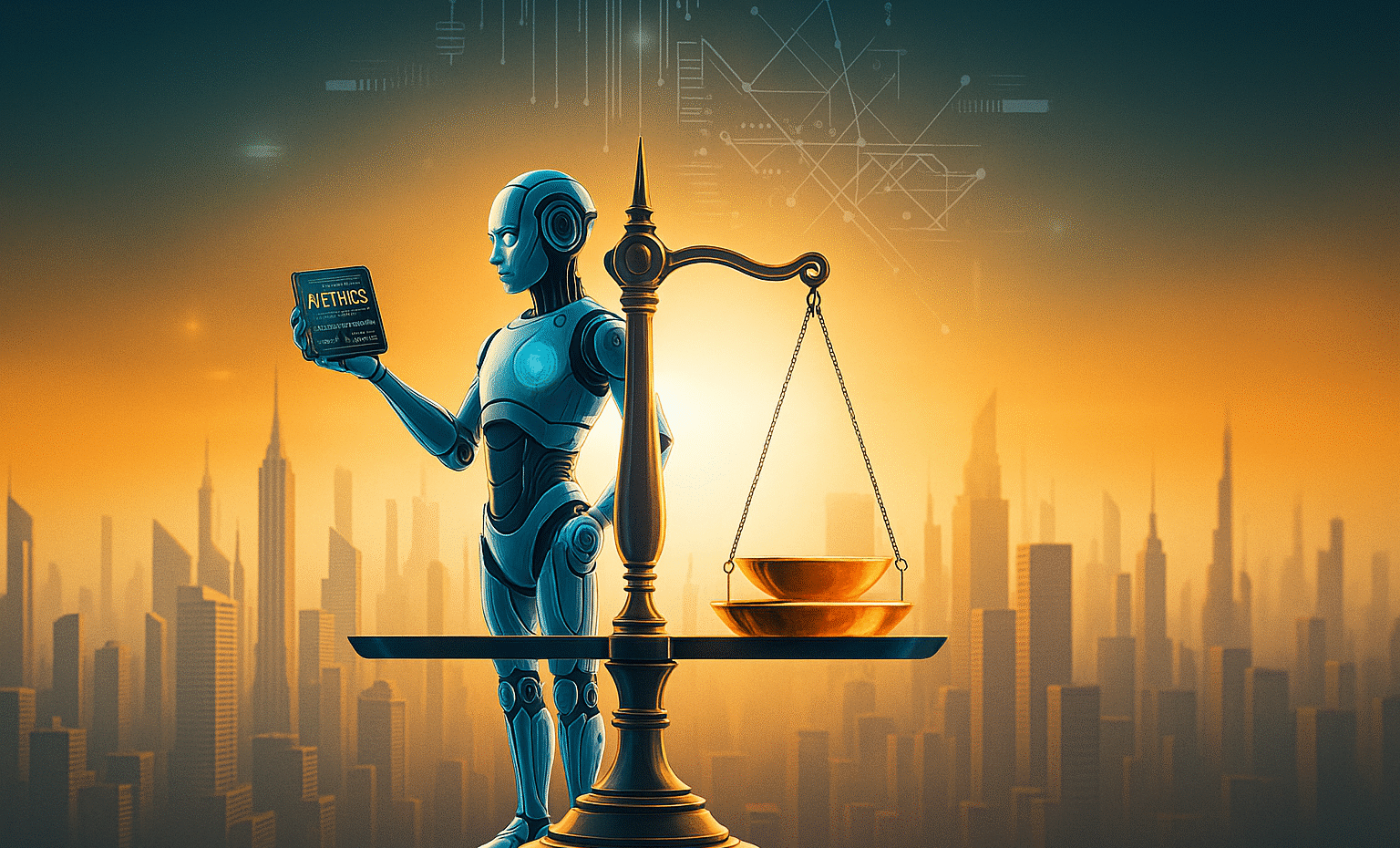- June 12, 2025
- by admin
Ethics of AI: Balancing Innovation with Responsibility
Artificial Intelligence (AI) is no longer confined to research labs or science fiction; it’s actively shaping how we work, interact, and make decisions. From personalized recommendations to autonomous vehicles and generative tools like ChatGPT, AI is touching nearly every sector including healthcare, finance, education, and software development.
But with this rapid innovation comes a critical question: Just because we can build something with AI, should we?
In today’s hyper-competitive tech environment, innovation is often praised above all. But ethical responsibility must grow in parallel with technical capability. Otherwise, we risk deploying technologies that reinforce bias, exploit user data, or operate in ways even their creators can’t fully understand.
This blog explores how we can balance AI innovation with ethical responsibility and why this balance is no longer optional, but essential.
Why Ethics in AI Matters Now More Than Ever
In the early days of AI development, models were mostly theoretical or limited to controlled applications. But now, AI makes real decisions about real people in real-time.
- Hiring algorithms filter candidates.
- Loan approval models assess creditworthiness.
- Healthcare AI recommends treatments.
- Content moderation bots decide what you can or can’t post.
Each of these applications carries serious ethical implications because when AI systems are biased or opaque, people suffer the consequences.
And as developers and business leaders, we are the ones responsible for what AI does.
Key Ethical Challenges in AI
1. Bias and Fairness
AI models learn from data. If that data contains historical bias racial, gender-based, geographic that bias is inherited and amplified.
A hiring algorithm trained on past successful hires may favor certain schools or demographics and penalize others unfairly. This isn’t just bad ethics it’s bad business and can lead to reputational damage or legal consequences.
👉 Solution: Build diverse training datasets, regularly audit algorithms, and include domain experts in model design.
2. Lack of Transparency (The “Black Box” Problem)
Many modern AI models, especially deep learning networks, are difficult to interpret. Even experienced engineers can’t always explain why a model made a particular prediction.
This becomes problematic when the stakes are high like explaining to a denied loan applicant or a patient why a certain recommendation was made.
👉 Solution: Use interpretable models where possible, apply explainability tools (like LIME or SHAP), and document decision logic for all critical use cases.
3. Privacy and Surveillance
AI thrives on data but collecting and using that data responsibly is a major ethical concern. From facial recognition to behavior tracking, AI can easily become a tool for mass surveillance if misused.
With the explosion of consumer-facing AI applications, users often aren’t fully aware of what data is being collected, how it’s being used, or who it’s being shared with.
👉 Solution: Be transparent about data collection. Follow privacy-by-design principles. Give users control over their data.
4. Job Displacement and Economic Inequality
Automation through AI will inevitably displace some jobs, especially repetitive or rule-based roles. While new jobs will also be created, not everyone will have the skills or access to make that transition easily.
The danger isn’t just in the job loss it’s in the unequal distribution of AI’s economic benefits. Without careful planning, we may deepen the divide between tech haves and have-nots.
👉 Solution: Invest in workforce reskilling, support public policy that promotes digital inclusion, and design AI to augment human workers not replace them.
Who Is Responsible?
One of the biggest ethical challenges in AI is shared responsibility. Is it the developer? The company? The regulator? The end user?
The truth is: responsibility is collective.
- Developers must write code with care.
- Companies must establish internal AI ethics guidelines.
- Governments must create regulatory frameworks.
- Users must engage critically with the tools they use.
It’s not about blame it’s about accountability. Everyone in the ecosystem must play a role in ensuring AI is aligned with human values.
Building a Culture of Ethical AI
It’s easy to add disclaimers after the fact. But the most responsible companies are building ethics into the foundation of their AI strategy.
Here’s how:
- Create AI Ethics Committees – Include stakeholders from engineering, legal, HR, and community groups.
- Incorporate Ethics into Development Workflows – Just like testing for bugs or performance, ethics checks should be part of product QA.
- Train Your Team – Developers, designers, and data scientists should be trained not just in what they’re building, but in why it matters.
- Engage With the Public – Include users and impacted communities in feedback loops. Transparency builds trust.
The Bottom Line: Innovation With Integrity
AI is one of the most powerful technologies of our time but power without responsibility is dangerous.
Companies that lead with ethics will gain trust, longevity, and reputation not just market share. Developers who learn to build responsibly will be in high demand not just for their skills, but for their judgment.
Balancing innovation with ethics isn’t about slowing down progress it’s about shaping it in a way that benefits everyone.
The future of AI isn’t just about how smart our machines can be. It’s about how wise we are in using them.

